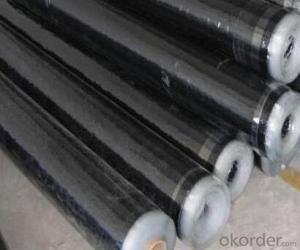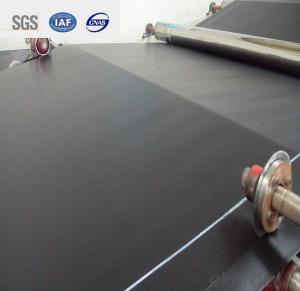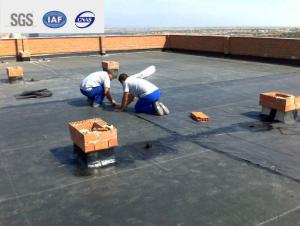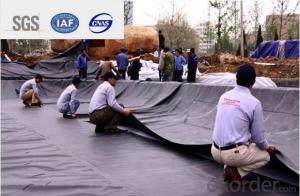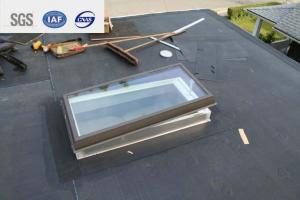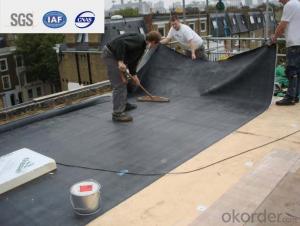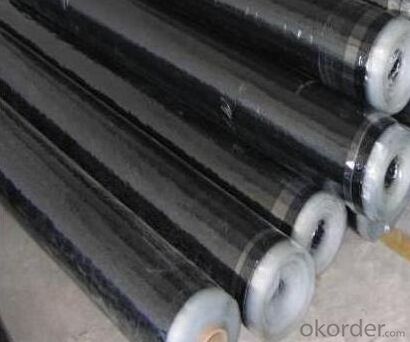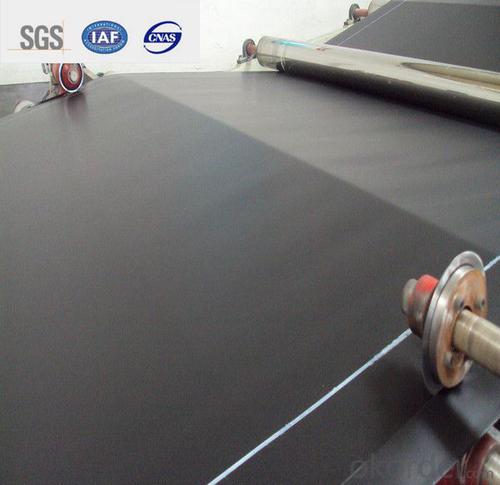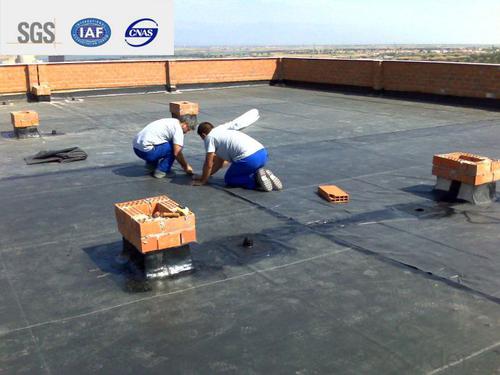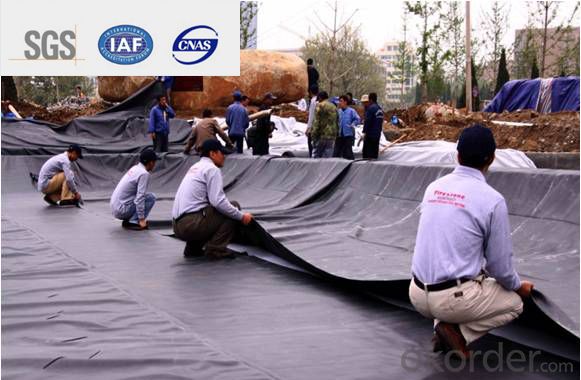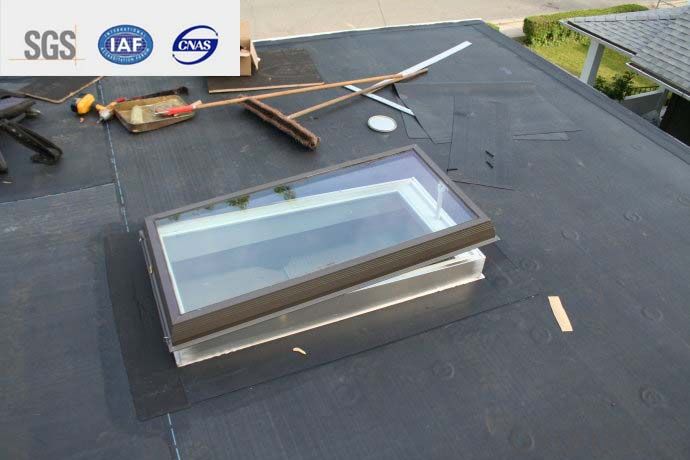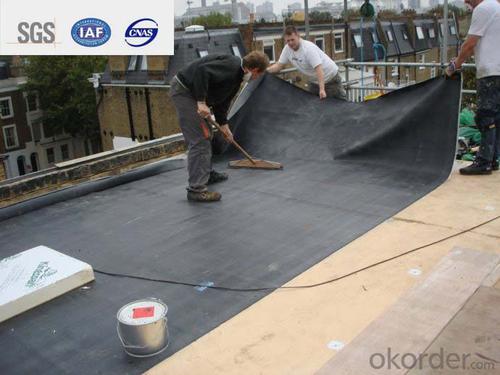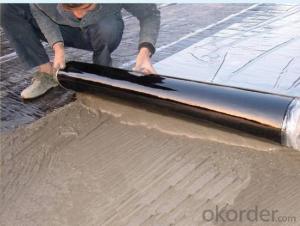EPDM Self-adhesive Waterproof Membrane for Rooftop 123Foam Material
- Loading Port:
- Qingdao
- Payment Terms:
- TT OR LC
- Min Order Qty:
- 2000 m²
- Supply Capability:
- 800000 m²/month
OKorder Service Pledge
OKorder Financial Service
You Might Also Like
Description Of EPDM Self-adhesive Waterproof Membrane Foam Material:
1. EPDM waterproof membrane is made from ternary ethylene-propylene rubber, which is for waterproofing of exposed and non-exposed applications.
2. EPDM waterproof membrane production adopts the world-advanced equipment of cold feeding extrusion and continuous vulcanization technology.
3. EPDM waterproof membrane is of high elasticity among high polymer waterproof materials and becomes a world-popular waterproofing material.
Main Features of EPDM Self-adhesive Waterproof Membrane Foam Material:
1 High tear
2 High puncturing strength
3 Great temperature resistance.
4 High dimensional stability
Specifications of EPDM Self-adhesive Waterproof Membrane Foam Material:
Material | EPDM Rubber |
Size | 1.2m (width)*20m (length) or customized, weldable type 2.05m or 4m width |
Thick | 1.2mm, 1.5mm, 2.0mm |
Type | Vulcanized & Weldable |
Pattern | Non-reinforced (homogeneous) |
Certificate | ISO9001/14001 |
Applications of EPDM Rubber Waterproof Membrane Foam Material:
Widely used for kinds of cold/hot medium piping and containers in central control air condition, construction, chemical
industry, medicine, light industry, textile process, metallurgy, boat, vehicle, electrical apparatus and others fields to reduce
cold/thermal loss.
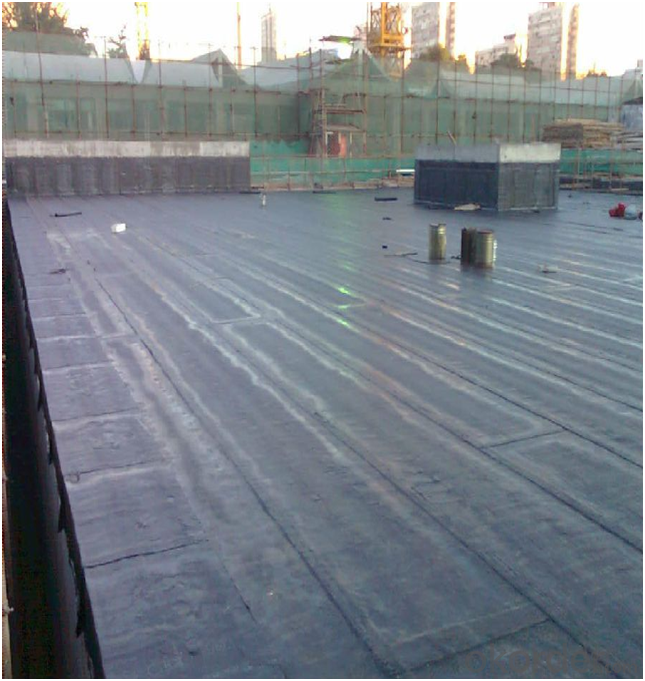
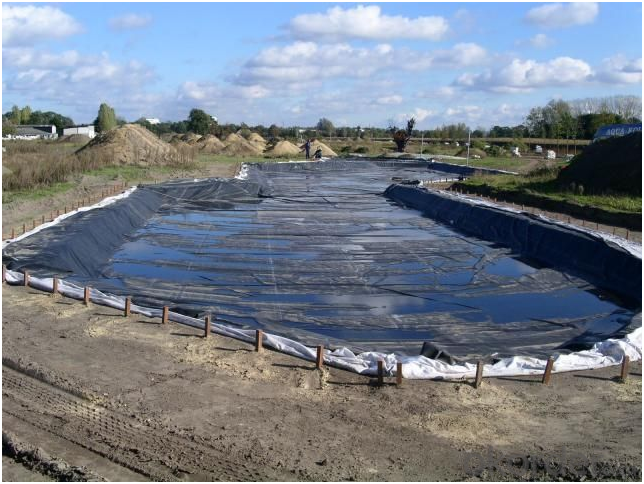
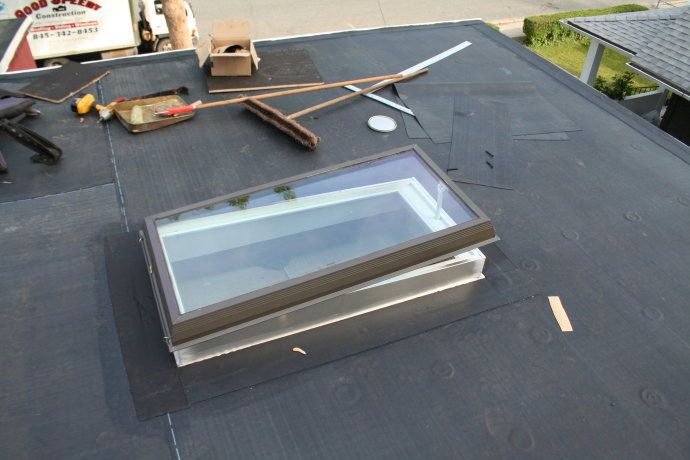
FAQ:
1. What are we supplying?
We are specialized in producing Colorful Asphalt Roof Shingle, SBS/APP modified bitumen waterproof membrane, Self adhesive bitumen waterproof membrane, PVC waterproofing membrane, EPDM rubber roofing membrane, Single Component Polyurethane Waterproof Coating, and Spray Polyurea Waterproof Coating.
2. How Many years experience do we have?
We have been exported to more than 20 countries in the past 15 years.
3. How long do we usually reply your request?
We always reply our customer within 24 hours.
- Q: Can a waterproofing membrane be used on concrete?
- Yes, a waterproofing membrane can be used on concrete. It is a common practice to use waterproofing membranes to protect concrete structures from water damage and moisture penetration. These membranes provide a barrier that prevents water from seeping into the concrete, thereby increasing its durability and lifespan.
- Q: Can a waterproofing membrane be used for a shower pan liner installation?
- Indeed, the utilization of a waterproofing membrane is possible for the installation of a shower pan liner. This specialized membrane is specifically crafted to establish a formidable defense against moisture and thwart any infiltration of water into the shower pan, thereby averting any potential harm to the underlying structure. The presence of a dependable and efficient waterproofing system is absolutely crucial in order to ensure the durability and soundness of the shower installation. By effectively sealing the shower pan and establishing an impermeable barrier, a waterproofing membrane can bestow this much-needed protection. It is imperative to select a membrane that is explicitly designed for deployment as a shower pan liner and to diligently adhere to the manufacturer's instructions for proper installation.
- Q: Can a waterproofing membrane be used for sealing pipe penetrations?
- Sealing pipe penetrations can be achieved with the use of a waterproofing membrane. These membranes are specifically designed to form a barrier against water intrusion and can effectively seal different types of penetrations, including pipes. In construction projects, they are widely utilized to prevent water leaks and potential damage. By applying the waterproofing membrane around the pipe penetration, a watertight seal is created, preventing the entry or escape of water through the opening. This action helps maintain the building envelope's integrity and safeguards against potential water-related problems like leaks, mold growth, and structural damage. Moreover, waterproofing membranes often possess flexibility, enabling them to adapt to the shape and size of the pipe penetration, ensuring a secure and long-lasting seal.
- Q: Are there any specific considerations for installing a waterproofing membrane on masonry surfaces?
- Yes, there are several specific considerations for installing a waterproofing membrane on masonry surfaces. Firstly, it is important to ensure that the masonry surface is clean and free from any dirt, debris, or loose materials that could compromise the adhesion of the membrane. Additionally, the surface should be properly prepared by repairing any cracks, holes, or damaged areas before applying the membrane. The type of waterproofing membrane chosen should be compatible with masonry surfaces and be able to withstand the movement and expansion that can occur. Proper installation techniques, such as ensuring sufficient overlap and proper sealing of joints, are also crucial to ensure effective waterproofing. Lastly, regular inspections and maintenance should be conducted to identify any potential issues and address them promptly.
- Q: Can waterproofing membranes be used in basements?
- Yes, waterproofing membranes can be used in basements. Waterproofing membranes are commonly used in basements to prevent water intrusion and dampness. By applying these membranes on the walls and floors of the basement, they create a barrier that prevents moisture from seeping into the basement, helping to keep the space dry and protected from water damage.
- Q: Can waterproofing membranes be used on concrete countertops?
- Concrete countertops can indeed benefit from the application of waterproofing membranes. These membranes are specially crafted to thwart the infiltration of water and can be utilized on diverse surfaces, including concrete. By opting for a waterproofing membrane on a concrete countertop, one can effectively safeguard it against water harm, staining, and possible structural concerns. Furthermore, these membranes can augment the countertop's resilience and lifespan by averting moisture-induced problems, such as cracking or warping. It is imperative to verify that the selected waterproofing membrane is concrete-compatible and appropriate for countertop use.
- Q: Can a waterproofing membrane be used for below-grade parking structures?
- Yes, a waterproofing membrane can be used for below-grade parking structures. Waterproofing membranes are commonly used in construction to prevent the ingress of water and protect structures from water damage. In the case of below-grade parking structures, which are underground or partially underground, there is a higher risk of water infiltration due to the surrounding soil and groundwater. Waterproofing membranes are applied to the exterior surfaces of the structure, creating a barrier that prevents water from seeping through the walls and floors. These membranes are typically made of materials such as bitumen, rubberized asphalt, PVC, or polyurethane, which are highly resistant to water penetration. Additionally, some membranes may also have additional properties like crack-bridging capabilities or protection against chemicals or gases. It is important to consult with a qualified engineer or waterproofing specialist to determine the most suitable membrane for a specific below-grade parking structure, taking into consideration factors such as soil conditions, hydrostatic pressure, and local building codes.
- Q: Can a waterproofing membrane be used on tunnels with lighting systems?
- Yes, a waterproofing membrane can be used on tunnels with lighting systems. The membrane can effectively protect the tunnel structure from water infiltration while allowing the lighting system to function properly.
- Q: Can waterproofing membranes be used on bridge decks?
- Yes, waterproofing membranes can be used on bridge decks. Bridge decks are constantly exposed to harsh weather conditions, including rain, snow, and freeze-thaw cycles, which can lead to the deterioration of the concrete and steel reinforcement. Waterproofing membranes are designed to prevent water infiltration and protect the bridge deck from moisture-related damage. These membranes are typically made of flexible materials such as bitumen, PVC, or EPDM rubber, and they are applied directly onto the bridge deck surface. The waterproofing membrane acts as a barrier, preventing water from seeping into the concrete and causing corrosion of the reinforcement. It also helps to reduce the formation of cracks and extends the service life of the bridge deck. Additionally, waterproofing membranes can be combined with other protective coatings or systems to enhance their effectiveness and durability. Overall, the use of waterproofing membranes on bridge decks is a common and effective method to ensure the long-term integrity and functionality of the structure.
- Q: Can waterproofing membranes be applied over existing surfaces?
- Yes, waterproofing membranes can be applied over existing surfaces. In fact, this is a common practice in construction and renovation projects. Waterproofing membranes are designed to provide a protective barrier against water infiltration, and they can be applied over various surfaces such as concrete, wood, metal, or even other waterproofing systems. By applying a waterproofing membrane over an existing surface, it helps to prevent water damage, including leaks, mold growth, and structural deterioration. However, it is important to ensure that the existing surface is properly prepared and cleaned before the membrane application to achieve optimal adhesion and performance. Additionally, it is recommended to consult with a professional waterproofing contractor to determine the most suitable membrane type and installation method for the specific project requirements.
Send your message to us
EPDM Self-adhesive Waterproof Membrane for Rooftop 123Foam Material
- Loading Port:
- Qingdao
- Payment Terms:
- TT OR LC
- Min Order Qty:
- 2000 m²
- Supply Capability:
- 800000 m²/month
OKorder Service Pledge
OKorder Financial Service
Similar products
Hot products
Hot Searches
Related keywords
